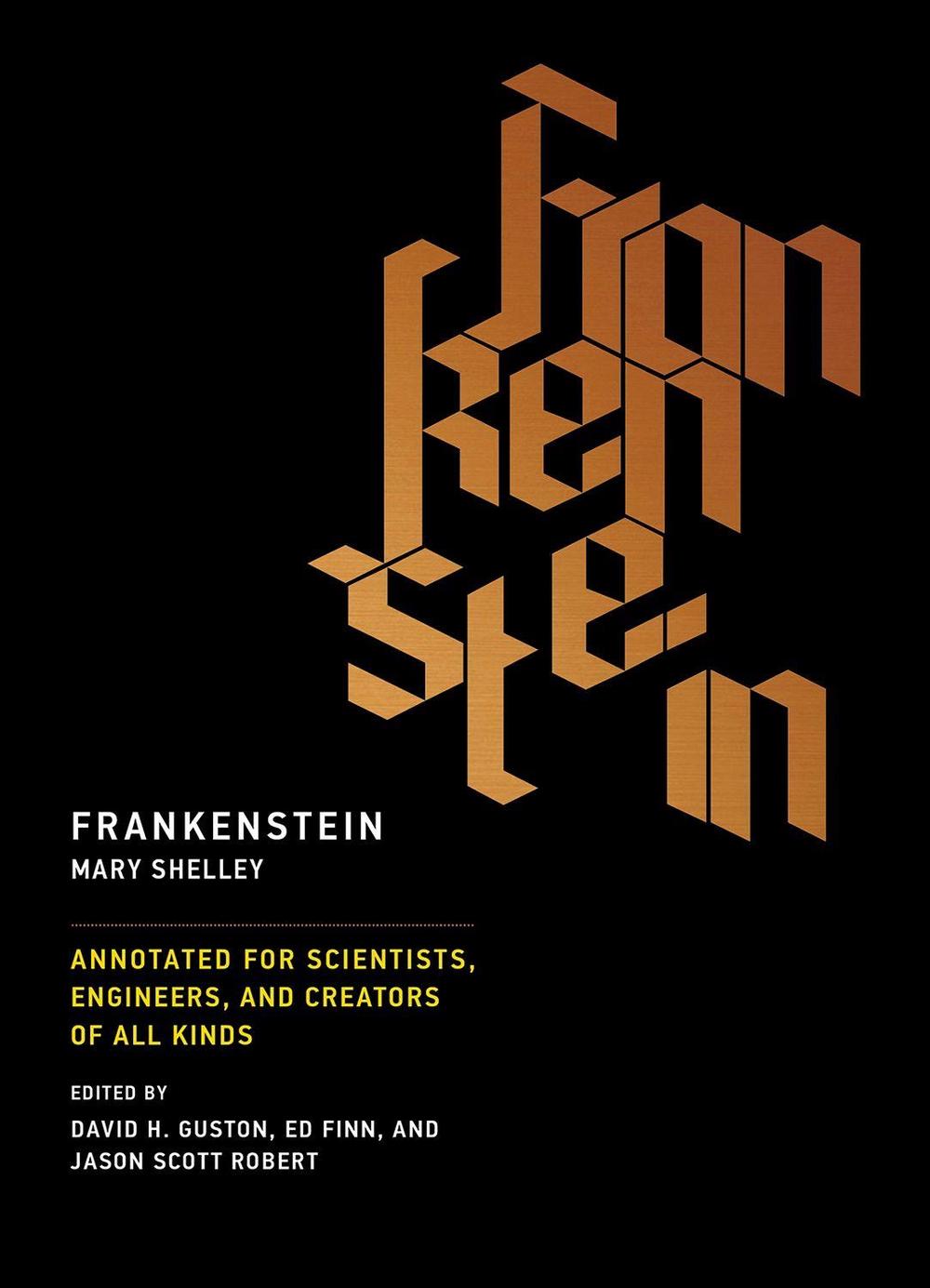
Frankenstein
Annotated for Scientists, Engineers, and Creators of All Kinds
$40.00
- Paperback
320 pages
- Release Date
4 May 2017
Summary
The original 1818 text of Mary Shelley’s classic novel, with annotations and essays highlighting its scientific, ethical, and cautionary aspects.Mary Shelley’s Frankenstein has endured in the popular imagination for two hundred years. Begun as a ghost story by an intellectually and socially precocious eighteen-year-old author during a cold and rainy summer on the shores of Lake Geneva, the dramatic tale of Victor Frankenstein and his stitched-together creature can be read as the ultimate para…
Book Details
| ISBN-13: | 9780262533287 |
|---|---|
| ISBN-10: | 0262533286 |
| Author: | Mary Shelley, David H. Guston, Ed Finn, Jason Scott Robert, Charles E. Robinson, Josephine Johnston, Cory Doctorow, Jane Maienschein, Kate MacCord, Alfred Nordmann |
| Publisher: | MIT Press Ltd |
| Imprint: | MIT Press |
| Format: | Paperback |
| Number of Pages: | 320 |
| Release Date: | 4 May 2017 |
| Weight: | 496g |
| Dimensions: | 229mm x 165mm x 21mm |
| Series: | The MIT Press |
What They're Saying
Critics Review
[The editors’s] expertise speaks to Frankenstein’s enduring message about existential stakes — and the potentially alarming societal consequences likely to devolve from the unfettered march of science and technology. Concerns about unintended consequences were urgent at the onset of the Industrial Revolution and the Nuclear Age, and they are, if anything, more urgent now.
—Los Angeles Review of BooksThe critical essays accompanying the text are eclectic, cross-disciplinary, and incisive….authoritative, yet accessible, and firmly situates both Shelley and her novel in relation to our contemporary tech-oriented age.
—LawfareThis newly annotated edition of the classic wrests the text from English majors and hands it to STEMers, but also brings the concerns of literature—moral weight, literary device, creativity—to readers at risk of underestimating their importance.
—Atlas ObscuraAbout The Author
Mary Shelley
David Guston is Professor and Founding Director of the School for the Future of Innovation in Society at Arizona State University, where he also serves as Codirector of the Consortium for Science, Policy, and Outcomes..Ed Finn is Founding Director of the Center for Science and the Imagination at Arizona State University, where he is also Assistant Professor with a joint appointment in the School of Arts, Media, and Engineering and the Department of English.Jason Scott Robert is Lincoln Chair in Ethics, Associate Professor in the School of Life Sciences, and Director of the Lincoln Center for Applied Ethics at Arizona State University.Jane Maienschein is Regents’ Professor and Parents Association Professor in the School of Life Sciences and Director of the Center of Biology and Society at Arizona State University.Alfred Nordmann is Professor of Philosophy at Technische Universit t Darmstadt and Adjunct Professor of Philosophy at the University of South Carolina.
Returns
This item is eligible for free returns within 30 days of delivery. See our returns policy for further details.




